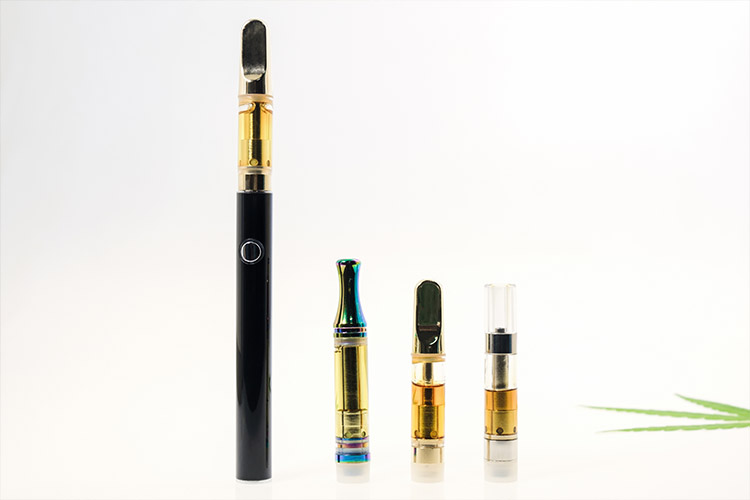The faint scent of marijuana when using high school bathrooms has been attributed to a phenomenon coined the “cartdemic” by teenagers nationwide on social media platforms like TikTok. The term “cartdemic” refers to the widespread use of illegally-obtained and unregulated liquid THC vaporizers, or “carts”.
According to a study in the psychology of addictive behaviors at University of California-Davis, cannabis is the most used psychoactive substance among adolescents and in 2022, 30.7% of 12th graders reported cannabis use in the past year. The question of whether or not teens can fully comprehend the irreversible damage often comes up alongside the legal age to indulge in vaping products.
“Being aware of the health problems, I know that living like this isn’t sustainable, and I do feel the guilt and shame over it, and I don’t plan to live like this forever,” Anonymous Source B said. “But at the age I am now I just feel like I have the leeway of indulging in it.”
Substance abuse is an ever-rising epidemic among Americans, with 46.8 million people ages 12 or older that reported battling a related disorder in 2022 according to the United States National Survey on Drug Use and Health. Indulging in THC use has become almost a trend among teenagers with the behaviors being plastered all over social media as ‘relatable’ content, with teens jokingly mentioning side effects like ‘brain fog’ and memory loss.
“I think that social media has heavily normalized drug use. I see memes talking about using fentanyl and everyone just laughs at it, even romanticizes it in edits, pretending that drug use isn’t serious,” Anonymous Source B said. “On TikTok people post content about weed problems and how they use it to battle their sadness, so someone who isn’t familiar with weed or isn’t tapped into that world has an easy gateway to it, seeing their favorite influencers smoking weed, [they] might feel compelled to try it out themselves.”
From potential cognitive impairments to decreased motivation and focus, the implications of THC consumption among teens extends beyond recreation with the debate of whether or not teenagers can balance academics with drug use.
“If you use [carts] responsibly I [don’t think it gets in the way of school work], but if you’re high at school or even at home when you need to be working it will negatively affect you,” Anonymous Source A said. “If you’re choosing to partake in THC use, setting out schedules and making sure you adhere to them is the only responsible way to balance it.”
In Tennessee, the use of cannabis recreationally is illegal; however, the state has legalized the use of cannabis-derived products with low levels of THC for medical purposes under certain qualifications. Locations that have easy access to THC products for underage users are shared on social media and even within family and friend relationships.
“I think [the way I grew up] definitely affected my cart use today, my cousins, my childhood best friend and her family all smoked weed religiously,” Anonymous Source A said. “There was once I was in the car with my friend’s sister’s boyfriend and we got pulled over with weed in the car, I was honestly terrified but it ended up being fine.”
Teachers are often on the front lines of witnessing firsthand the impact of substance abuse on student behaviors and academic performance. Self-medicating for various mental health crises is a leading motivator for using substances amongst some teens.
“I was in such a deep—not depression, but I had a lot of things on my mind, and it really helped me forget about it. It helps me enjoy the present and not dwell in my feelings,” Anonymous Source A said. “It affects my memory over time, so as the feeling dies down, each time I’m reminded of the situation, I won’t remember it with such heavy feelings.”
Parents serve as primary influencers in shaping their children’s attitudes and behaviors towards substance use. By fostering open communication and providing support, students with a complicated relationship with drugs might feel less inclined to hide it and struggle alone, while already facing challenges such as stigma and overall lack of awareness.
“I don’t think my parents even know what carts are, but my mom and dad have suspected that I smoke [weed],” Anonymous Source A said. “They know that all my friends smoke, it’s kinda like a ‘don’t ask, don’t tell’ situation.”




































